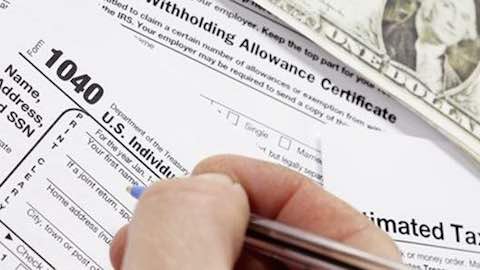- MENU
- HOME
- SEARCH
- WORLD
- MAIN
- AFRICA
- ASIA
- BALKANS
- EUROPE
- LATIN AMERICA
- MIDDLE EAST
- United Kingdom
- United States
- Argentina
- Australia
- Austria
- Benelux
- Brazil
- Canada
- China
- France
- Germany
- Greece
- Hungary
- India
- Indonesia
- Ireland
- Israel
- Italy
- Japan
- Korea
- Mexico
- New Zealand
- Pakistan
- Philippines
- Poland
- Russia
- South Africa
- Spain
- Taiwan
- Turkey
- USA
- BUSINESS
- WEALTH
- STOCKS
- TECH
- HEALTH
- LIFESTYLE
- ENTERTAINMENT
- SPORTS
- RSS
- iHaveNet.com: Personal Finance

Tax Time Tips: How To Combat Tax Identity Theft Fraud
(BPT) - April 15 is quickly approaching, and while receiving a tax refund may be the first thing on your mind, there’s one important issue to think about: tax fraud. Tax-related identity theft occurs when your personal information is stolen and used to file a tax return claiming a fraudulent refund. In 2013, more than $5 billion in tax refunds was sent to fraudsters, affecting more than 1.6 million tax filers, according to the Internal Revenue Service.
To help minimize the risk of being a victim of tax identity theft fraud, here are four tips from H&R Block:
Safeguard your personal information
With just your name, birth date and Social Security number, identify thieves could scam you. Here are some simple steps to protect your private financial information:
* Don’t carry around your Social Security card or any documents showing this information.
* Secure personal information in your home.
* Protect your personal computer by using firewalls, anti-spam and anti-virus software.
* Don’t share your personal information over the phone, by mail or the Internet, unless you have either initiated the contact or are certain you know who is asking.
File your taxes early
One of the best defenses against tax fraud is to file early – and there’s still time to beat the final tax push in April. When planning for future tax seasons, remember that the sooner you file your taxes, the less chance a thief has to file ahead of you and claim a fraudulent refund using your personal information. Resolving a case of a stolen identity could take several months or even years, significantly delaying your tax refund or even the filing of your tax return.
Beware of suspicious contact claiming to be from the IRS
Identity thieves are sending phony emails and texts or making calls pretending to be representatives of the IRS. In this common scam, fraudsters will tell you that you must pay money that you owe immediately and demand your personal information. The IRS communicates to taxpayers by an official letter in the mail and would not ask you for confidential financial information.
Be proactive about protecting yourself
You can take several actions to protect yourself from tax fraud. Here are some ways to be on the offensive when it comes to identity protection:
* Check your credit report annually and scan for any unusual activities. You can obtain a free copy of your credit report from all three of the national credit bureaus at www.annualcreditreport.com.
* Invest in a tool to help better protect yourself from becoming a victim of tax identify theft, such as H&R Block’s Tax Identity Shield.
* Report any suspicious online or email scams to the IRS.
Although no taxpayer is immune to fraud, it’s important to educate yourself on what can be done to prevent tax fraud. Visit H&R Block’s Fraud Resource Center to learn more about tax identity theft fraud protection.
This is financial education only and is not to be taken as personal financial advice since everyone’s situation is different.
Personal Finance: "Tax Time Tips: How To Combat Tax Identity Theft Fraud"